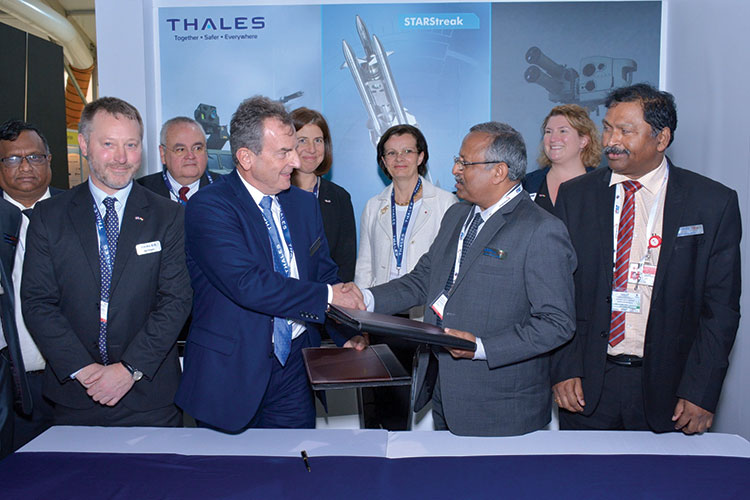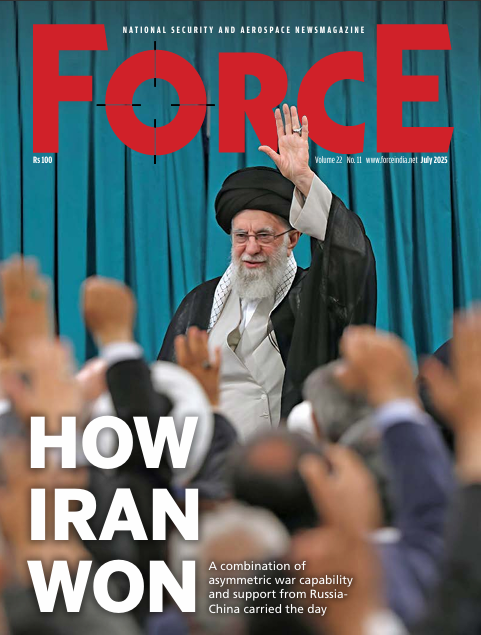Money Over Matter | Dynamic Move
 Maj. Gen. Mrinal Suman (retd)
Maj. Gen. Mrinal Suman (retd)
In a policy initiative of monumental proportions, the Defence Acquisition Council (DAC), the overarching decision-making body in the ministry of defence (MoD), approved the adoption of strategic partnership (SP) scheme on 20 May 2016. It is by far the most dynamic reform in the field of defence production and has the potential to kick-start indigenous defence industry, if implemented judiciously and sincerely.
Despite repeated protestations of striving to achieve self-reliance in defence production, India continues to import 70 per cent of its requirements and has acquired the shameful distinction of being the largest importer of conventional weapons in the world, accounting for 14 per cent of the world share.
Maximum blame for the current pitiable state of India’s defence industry can be apportioned to MoD. It is responsible for perpetuating the monopoly of an inefficient, unproductive and inept public sector. With 39 ordnance factories and nine undertakings, the public sector possesses enormous infrastructure and manufacturing facilities. However, due to assured flow of orders from a captive customer base, a culture of complacency has set in. Its track record is abysmal.
Similarly, the Defence Research and Development Organisation (DRDO) has acquired the dubious distinction of never developing any equipment in the required time-frame and conforming to the operational parameters. Performance of DRDO has become synonymous with wasteful expenditure, prolonged delays and cost overruns. The only success DRDO has to its credit relates to the replication of some imported low-tech products (euphemistically called ‘reverse engineering’ and ‘indigenisation’).
Fully aware of its weaknesses, the public sector is wary of competing against a far more efficient private sector. Although the defence sector was thrown open to the private industry in 2002, the public sector has been assiduously employing all stratagems to retain its monopoly. Resultantly, the private sector continues to be a peripheral player. Only a handful of India’s top companies are involved in small value defence contracts.
Realising that self-reliance would remain a pipe dream if India continued to bank solely on the public sector, the Kelkar Committee, constituted in 2004, recommended that select private sector industry leaders be identified as Raksha Utpadan Ratna (RUR) and treated at par with the public sector for all defence acquisition purposes, including design and development of high technology complex systems under the ‘Make’ procedure and receipt of funds for developmental projects.
MoD accepted the above recommendation and the first selection committee was constituted in May 2006. Reportedly, 12 companies were shortlisted. MoD received the report in June 2007 but developed cold feet in the face of stiff resistance put up by an insecure public sector. The time-tested ploy of playing up likely risks to the national security was cleverly resorted to. In addition, intense opposition was orchestrated through the affiliated trade unions by projecting RUR as a threat to the very survival of the public sector entities. As a result, the leadership considered it prudent to abandon the scheme.

VP & country director for India, Thales, Emmanuel de Roquefeuil exchanging MoU with director-technical, BDL, K Divakar
Genesis of Strategic Partnership Scheme
An expert committee under Dhirendra Singh was constituted in May 2015. It was tasked to evolve a policy framework to facilitate ‘Make in India’ in defence manufacturing and align the policy evolved with the defence procurement procedure; suggest amendments to remove bottlenecks in the procurement process; and simplify/rationalise various aspects of defence procurement.
The committee rightly averred that ‘vibrant defence industrial base must necessarily include the private industry’ and suggested forging of long-term partnership with the private sector. It went on to stress that fostering a constructive, long-term partnership was not just an economic option but a strategic imperative to mini
Subscribe To Force
Fuel Fearless Journalism with Your Yearly Subscription
SUBSCRIBE NOW
We don’t tell you how to do your job…
But we put the environment in which you do your job in perspective, so that when you step out you do so with the complete picture.








